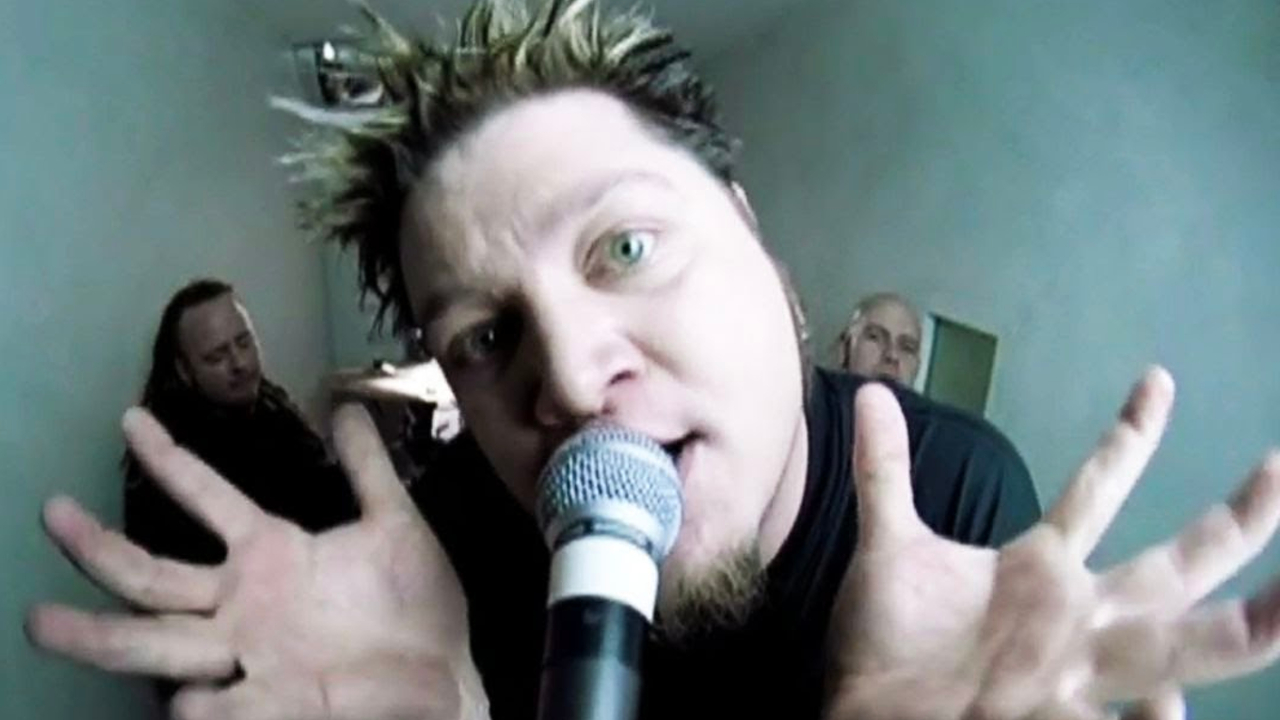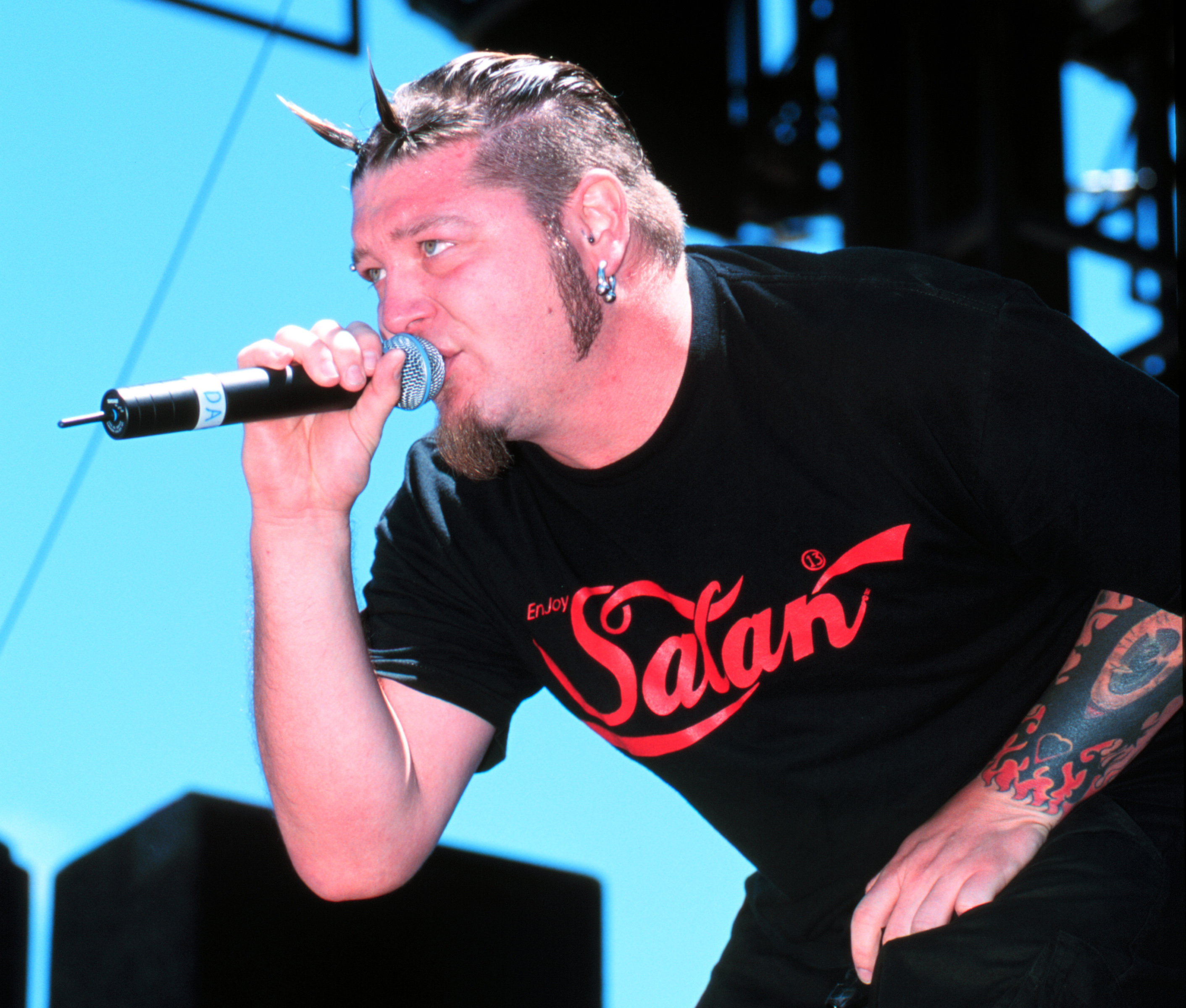“I’d play Bodies five times a night if people really wanted it that bad!" How a misunderstood mosh anthem and patronage by Sharon Osbourne made Drowning Pool nu metal's new superstars - before tragedy snatched it all away
Bodies positioned Drowning Pool to be one of the biggest metal bands of their generation - but the shocking death of beloved frontman Dave Williams cut their destiny short

Drowning Pool’s breakout single, Bodies just might be the ultimate nu metal anthem. Even well over 20 years on from release, the song maintains a near-ubiquitous presence in metal clubs, bars and gig playlists right across the planet. An unabashed love letter to mosher culture, the song arose during the golden age of nu metal, proof positive that any new band could fly from obscurity to stardom with the right song. Only, Drowning Pool never really saw themselves as a nu metal band.
“We actually always wanted to be Pantera,” admits bassist Stevie Benton. “But by the time our first album came out bands like Limp Bizkit and Korn were popular, so when Bodies became really popular the logic was that we also must be a nu metal band like Limp Bizkit.”
It was Pantera that lured guitarist CJ Pierce and drummer Mike Luce away from their home scene in New Orleans in 1996, leaving behind “mostly blues and a few death metal bands” for the groove metal scene that had arisen in Dallas in Texan groove metal titans' wake.
There, the pair connected with Stevie and Drowning Pool formed as an instrumental three-piece. They later found the missing ingredient in vocalist Dave Williams, the singer providing the requisite snarls to complement their tight grooves, but also crucially bringing with him a gregarious party animal vibe that cemented their reputation as a killer live band.
“Dave was a real firecracker,” Stevie adds. “You just never knew what was going to happen. The life of every party to the point where if there wasn’t a party, he would create one just to become the life of it.”

Now a four-piece, Drowning Pool began honing the material that would eventually become their debut album, Sinner, while playing any open spot they could find in Texas or neighbouring states Louisiana and Oklahoma. In the early days the band’s interests were less about global conquest and more how they could fund their party lifestyle.
“We had this huge, well-thought-out plan… for how to get a free bar tab,” Stevie says. “As things progressed and we built up a crowd we started getting paid for gigs. Of course then we would see this thing where a promoter would come along like, ‘Hey, I was going to pay you $200, but you guys drank your bar tab and then drank another $300, so you owe me $100.”
Sign up below to get the latest from Metal Hammer, plus exclusive special offers, direct to your inbox!
Even when they made a loss, they were having the time of their lives. In turn, the crowds were growing at a rate where the band had moved from playing to “the bartenders and their girlfriends” to 500 or 600 people a night. It was here that the band first got the idea to write an ode to the wild crowds they would play to.
“We played shows where people were just everywhere,” Stevie says. “Climbing on the stage, into the rafters and diving off… That’s where this ‘let the bodies hit the floor’ idea first came in.”
“We had this one friend that always tried to stage dive even if there were only like nine people in the crowd, which guaranteed he was gonna hit the floor pretty much every time,” CJ recalls. “One time he jumped off and shattered his knee in four places.”
Based around a riff CJ had written while the band were still a three-piece, the song existed in various demos before taking its final shape.
“Dave already had the idea with the count-in, but there are different early versions of Bodies where we didn’t know quite what to say,” Stevie says. “There’s versions where he’s just making things up between numbers. There’s one where he pretends to answer a telephone, for whatever reason!”
Drowning Pool ultimately got signed by Wind-Up Records, home of post-grunge superstars Creed. Surprisingly, it wasn’t the song for which they became best known that grabbed the label’s attention.
“We’d recorded this song Tear Away that local radio stations really liked and ended up playing lots,” Stevie says. “But when Wind-Up heard the full record, they said they were going with Bodies as the first single instead. Straight away I thought, ‘That’s it, our career is ruined before we’ve even started.’ Shows what I fucking know!”
Released on May 14, 2001, Bodies steadily climbed its way up the charts, ultimately peaking in the US when it hit No.6. Not coincidentally, the song’s ascent up the charts coincided with Drowning Pool’s appearance on the 2001 Ozzfest tour, where they joined the likes of Black Sabbath, Slipknot and Linkin Park on a trek across North America.
“Sharon Osbourne ended up moving us up the bill of Ozzfest while we were on the tour,” CJ says. “We did the Jägermeister tour straight after, then Music As A Weapon with Disturbed. These were huge arena crowds, but every night we’d go out and do Bodies and you’d see the whole place go up.”
With heavy radio and MTV play, Bodies looked like elevating Drowning Pool to metal’s top-tier. Yet the events of 9/11 halted the song’s ascent – US radio conglomerate Clear Channel adding it to a list of songs unofficially banned in the wake of the attacks on the Twin Towers, deeming its lyrics inappropriate. In turn, this kickstarted a trend for misinterpreting the song’s lyrics to link to acts of violence.
“It’s always really frustrated me that people took this song – that was about kids at a rock show – and put all these negative connotations on it,” Stevie says. “When Clear Channel just struck it off, they made it seem like there was a reason for it to be banned. It took away the ambiguity of the song and people’s ability to decide on the meaning for themselves.”
Worse was to come. On August 14, 2002, Dave Williams was found dead on the band’s tourbus in at a stop-off in Manassas, Virginia on that year’s Ozzfest. The cause of death was cardiomyopathy, a heart condition that had gone undiagnosed. He was just 30 years old.
“Dave was an incredibly loving guy,” CJ says. “His personality really helped people connect with the music and I don’t think we’d have got the support we did without him. He loved getting to know people, whether it was fans, other bands or the guys in the bar. To this day, I hang out and watch every band because of what Dave taught me – it’s a rock’n’roll show and everybody’s there to have a good time.”
In November 2002 the band commemorated their fallen bandmate with the documentary Sinema, featuring tributes from fans. Proceeds from the movie’s sale were set aside to help purchase a retirement home for Dave’s parents, something he had told the band was a dream for him.
Though Drowning Pool continued after Dave's death, they spent much of the 2000s in a state of identity crisis, working with a number of other singers (including Soil’s Ryan McCombs) until they finally stabilised their line-up with Jasen Moreno in 2012. A local boy who played in other groups when Drowning Pool were starting out, Jasen admits his long-standing relationship with the band – and with Dave Williams in particular – makes Bodies a particularly poignant song to play live.
“Bodies is my absolute favourite part of the set,” Jasen says. “That song was undeniable when it came out – we all knew that – so being in the position to be onstage singing it with the fans is unreal.”
Though Bodies has continued to be misinterpreted in the mainstream media from time to time in the two decades since its release (including reports it was used by interrogators at Guantanamo Bay detention camps and was linked to the 2011 shooting of Congresswoman Gabby Giffords), its true meaning has been embraced by the culture that inspired it in the first place.
Played everywhere from clubs, gigs and bars to wrestling shows, MMA tournaments and even America's Got Talent, Bodies is rightly hailed as a bona fide anthem for metal culture, not just Drowning Pool’s biggest song, but one of the all-time great metal club anthems. Unlike so many other bands, however, Drowning Pool don’t resent being immediately associated with their big hit.
“I’ve never really understood that thing where a band doesn’t want to play their biggest song live,” CJ says. “I’d play Bodies five times a night if people really wanted it that bad! I find it really cool when we get young fans coming to a show and saying ‘I just got into that song Bodies - it’s awesome!’ because to them it doesn’t matter the song is 20 years old, they’re hearing it just now for the first time.”
“I think that is the legacy of Bodies,” Stevie adds. “Even now, whenever somebody needs a shot of adrenaline and to psych somebody up, that is the go-to song over everything else. It’s a shot in the arm that will get you pumped up.”
Looking at pretty much any dance- floor at a metal club over the past 20 years, we’re inclined to agree.
Staff writer for Metal Hammer, Rich has never met a feature he didn't fancy, which is just as well when it comes to covering everything rock, punk and metal for both print and online, be it legendary events like Rock In Rio or Clash Of The Titans or seeking out exciting new bands like Nine Treasures, Jinjer and Sleep Token.

